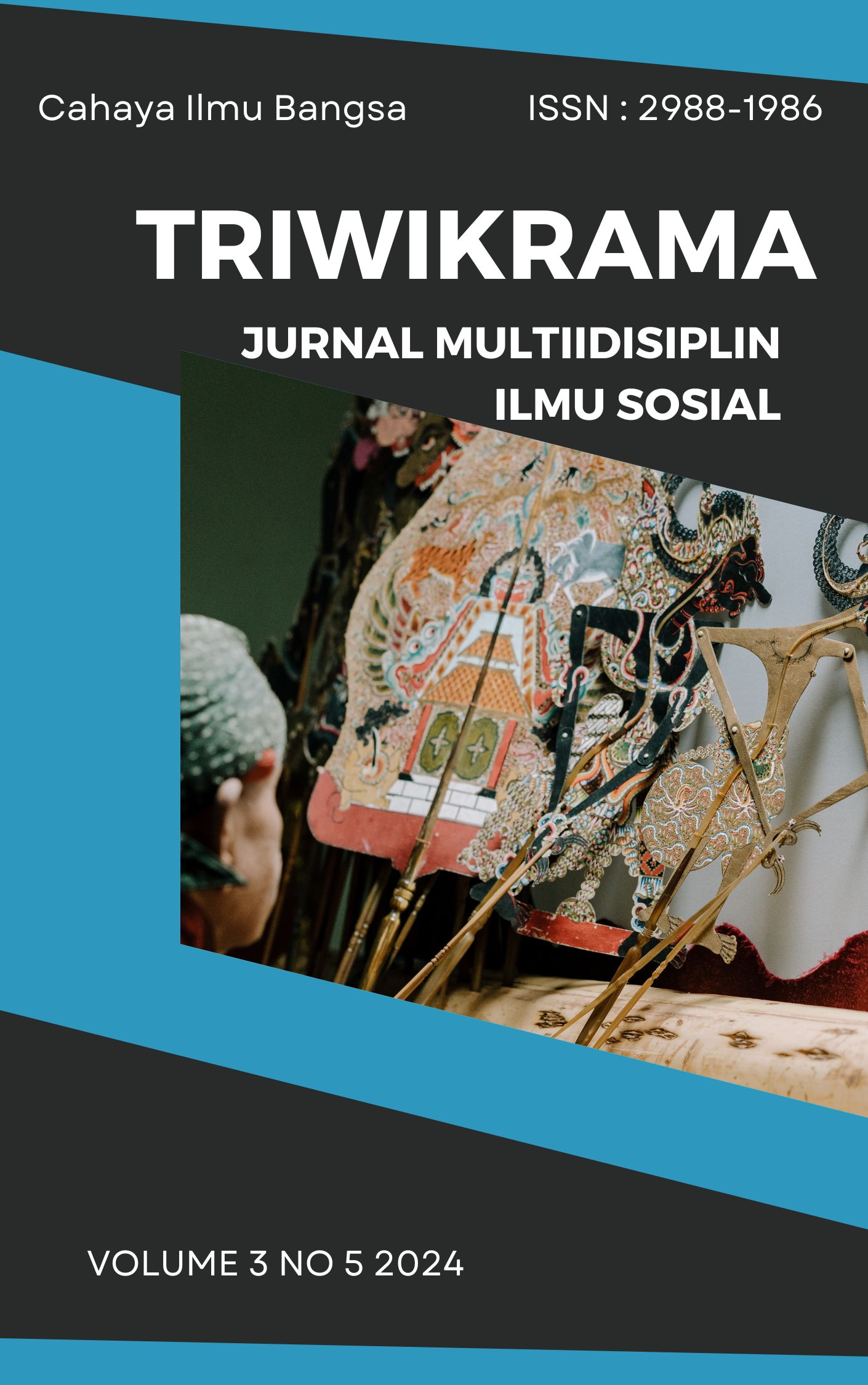DILEMA TANPA NEGARA: MENGUAK AKAR, KEKERASAN SISTEMATIS, DAN JEJAK KRISIS ROHINGYA DI PANGGUNG REGIONAL
DOI:
https://doi.org/10.9963/2fh4g805Keywords:
Konflik Rohingya; Krisis Kemanusiaan; Myanmar; Diskriminasi Etnis; Pelanggaran HAM; Pengungsi; Pembersihan EtnisAbstract
Krisis yang melanda etnis minoritas Muslim Rohingya di Negara Bagian Rakhine, Myanmar, telah menjadi pusat perhatian dunia sebagai salah satu bencana kemanusiaan dan kasus pelanggaran hak asasi manusia terburuk di Asia Tenggara pada abad ke-21. Akar masalah konflik ini sangat kompleks yang mana konflik ini bermula dari sejarah panjang diskriminasi terlembaga, penolakan kewarganegaraan Rohingya secara sistematis melalui Undang-Undang Kewarganegaraan 1982, serta ketegangan etnis-agama yang mendalam. Puncak kekerasan militer pada Agustus 2017 yang dinyatakan sebagai tindakan atas serbuan kelompok bersenjata Rohingya berdampak pada operasi "pembersihan" masif. Hal ini mengakibatkan lebih dari 740.000 warga Rohingya terpaksa mengungsi ke Bangladesh, menegaskan kegagalan fundamental tata kelola pemerintahan dan perlindungan hak-hak dasar di Myanmar. Temuan utama penelitian ini menunjukkan bahwa konflik Rohingya merupakan konsekuensi langsung dari kebijakan diskriminatif dan sistematis oleh negara Myanmar yang juga diperparah oleh berkembangnya sentimen ultranasionalisme Buddhis dan Islamofobia. PBB mengklasifikasikan kekerasan yang menimpa warga Rohingya sebagai genosida yang mana ditunjukkan dengan adanya karakteristik pembersihan etnis yang berdampak pada munculnya korban jiwa, kehancuran komunitas, dan timbulnya krisis pengungsi terbesar di Asia yang belum terselesaikan. Dapat disimpulkan bahwa penyelesaian konflik jangka panjang dan pemulangan Rohingya secara aman dan bermartabat membutuhkan pengakuan kewarganegaraan penuh, penghapusan diskriminasi struktural, penegakan akuntabilitas atas pelanggaran HAM berat, serta tekanan berkelanjutan dari komunitas internasional agar Myanmar mematuhi hukum internasional dan melindungi hak-hak minoritasnya.
References
Ahmed, I. (2016). The plight of Rohingya Muslims in Myanmar: Challenges and prospects. Journal of Muslim Minority Affairs, 36(3), 391–408.
Alam, S., & Rahman, M. (2020). The Rohingya refugee crisis: An international legal perspective. Journal of International Peacekeeping, 27(1), 101–118.
Amnesty International. (2017, October 24). Myanmar: “My world is finished”: Rohingya targeted in crimes against humanity in Myanmar (ASA 16/7036/2017). https://www.amnesty.org/en/documents/asa16/7036/2017/en/
Blaikie, N. (2009). Designing social research: The logic of anticipation. Polity Press.
Braun, V., & Clarke, V. (2006). Using thematic analysis in psychology. Qualitative Research in Psychology, 3(2), 77–101. https://doi.org/10.1191/1478088706qp063oa
Butcher, J. (2017). The Rohingya crisis: Implications for ASEAN. The International Spectator, 52(4), 81–96. https://doi.org/10.1080/03932729.2017.1384078
Charney, J. A. (2000). The Rohingya of Myanmar: A case of gradual genocide. Journal of Asian Studies, 59(1), 1–25. https://doi.org/10.2307/2658826
Chege, A. M. (2016). International law and the Rohingya refugee crisis: A critical analysis. Journal of Diplomacy and International Relations, 7(1), 1–15.
Creswell, J. W. (2018). Qualitative inquiry and research design: Choosing among five approaches (4th ed.). Sage Publications.
Denzin, N. K. (2017). The research act: A theoretical introduction to sociological methods (3rd ed.). Routledge.
Farzana, K. (2017). The Rohingya refugee crisis: A security challenge for Bangladesh. Journal of Liberty and International Affairs, 3(2), 1–13.
Haque, M. N., & Hasan, M. A. (2021). The Rohingya refugee crisis and regional security dynamics: A Bangladesh perspective. Journal of South Asian and Middle Eastern Studies, 44(4), 1–20.
Hossain, M. M. (2019). The Rohingya crisis: A challenge to international human rights law. Asian Journal of International Law, 25(1), 1–28.
Human Rights Watch. (2019). World report 2020: Myanmar events of 2019. https://www.hrw.org/world-report/2020/country-chapters/myanmar
Ibrahim, A. (2016). The Rohingya Muslim minority in Myanmar: A case study of genocide. Journal of Muslim Minority Affairs, 36(4), 543–559.
Lewa, C. (2018). Myanmar’s Rohingya: A conflict of identities. Journal of South Asian Studies, 41(2), 263–279.
Masud, M. (2019). Rohingya crisis: Geopolitical dynamics and regional security challenges. Journal of Asian and African Studies, 54(6), 843–860. https://doi.org/10.1177/0021909619881827
Maung, Z., & Cowley, A. (2018). The state against the Rohingya: Root causes of the expulsion of Rohingya from Myanmar. The Muslim World Journal of Human Rights, 15(1), 1–28. https://doi.org/10.1163/15597936-01501001
Mia, M. A. (2017). The plight of Rohingya refugees: A humanitarian crisis. Journal of Refugee Studies, 30(4), 601–615. https://doi.org/10.1093/jrs/few033
Mia, M. A. (2021). The Rohingya crisis and the politics of return: Challenges and prospects. Journal of Refugee Studies, 34(2), 241–255. https://doi.org/10.1093/jrs/feab009
Petersen, R. D., & Thapa, D. (2019). The Rohingya crisis: Perceptions of genocide. Journal of Genocide Research, 21(3), 373–390. https://doi.org/10.1080/14623528.2019.1624641
Ramakrishna, K. (2018). The Rohingya crisis: A challenge to Southeast Asian security. Contemporary Southeast Asia, 40(2), 211–230. https://doi.org/10.1355/cs40-2c
Schlein, L. (2021, March 24). UNHCR calls for sustained international support for Rohingya refugees in Bangladesh. UNHCR News. https://www.unhcr.org/news/stories/2021/3/605ac5a54/unhcr-calls-sustained-international-support-rohingya-refugees-bangladesh.html
Snyder, H. (2019). Literature review as a research methodology: An overview and guidelines. Journal of Business Research, 104, 333–339. https://doi.org/10.1016/j.jbusres.2019.07.039
Southwick, A. M. (2018). The Rohingya crisis: A test of international law and diplomacy. Harvard International Law Journal, 59(2), 527–548.
Tahlil, M., & Abdulrahman, A. (2019). The Rohingya persecution and repatriation challenges. Journal of International Affairs, 73(1), 185–200.
Ullah, A. A. (2017). Rohingya crisis in Myanmar: A humanitarian challenge. Journal of Liberty and International Affairs, 3(1), 1–10.
UN Human Rights Council. (2018, August 27). Report of the Independent International Fact-Finding Mission on Myanmar (A/HRC/39/53). United Nations. https://www.ohchr.org/en/hr-bodies/hrc/myanmar-ffm/report-myanmar-ffm
UNHCR. (2018). Myanmar situation response: January – December 2018. UNHCR Global Focus. https://reporting.unhcr.org/sites/default/files/UNHCR%20Global%20Focus%202018%20-%20Myanmar%20Situation%20Response.pdf
Van der Veer, P. (2019). Religious nationalism and the Rohingya crisis. Journal of Current Affairs, 25(2), 150–165.
Wee, C. (2020). The Rohingya crisis: A regional security challenge for ASEAN. Asian Politics & Policy, 12(1), 108–124. https://doi.org/10.1111/aspp.12513
Yusuf, I. (2018). Three faces of the Rohingya crisis: Religious nationalism, Asian Islamophobia, and delegitimizing citizenship. Journal of Muslim Minority Affairs, 38(3), 391–411. https://doi.org/10.1080/13602004.2018.1506440
Downloads
Published
Issue
Section
License

This work is licensed under a Creative Commons Attribution-NonCommercial-ShareAlike 4.0 International License.










